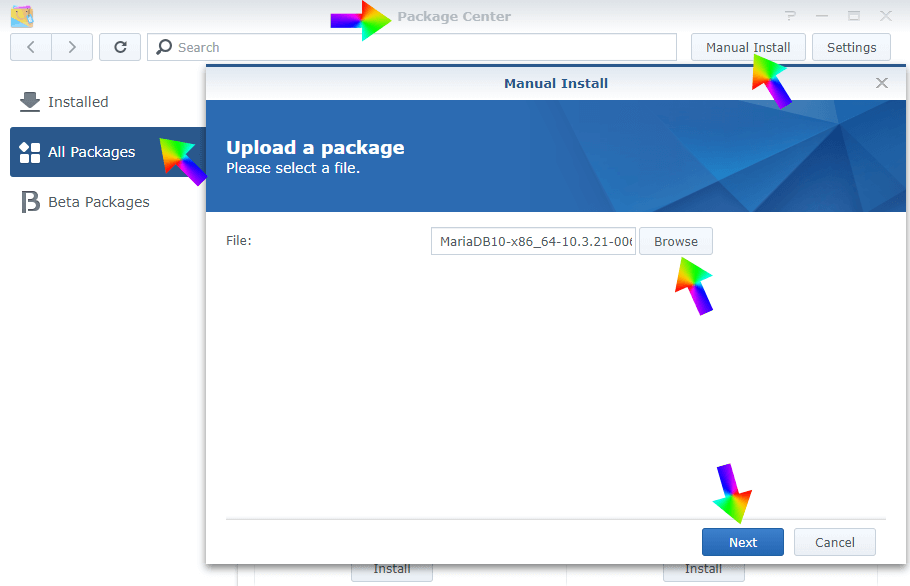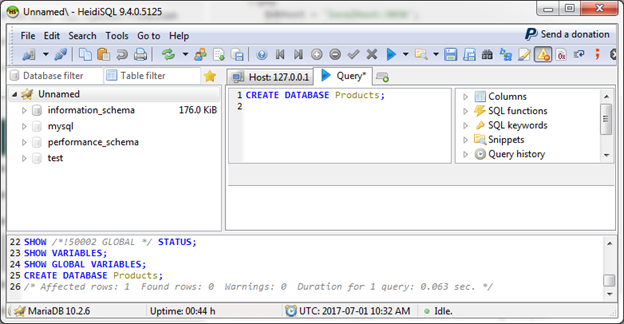
This is from phone so, not the best answer. Try stopping phpmyadmin and restart mariadb.Īnd if you only need a dB to use and don't mind start fresh, you can use a simple YML from linuxserver. What does nextcloud has to do with his issue with mariadb?Īny reason to use mariadb from Portainer?Īnd if you have phpmyadmin, one can only assume it's for the mariadb, correct?

"": "MariaDB Database for relational SQL", ".name": "docker.io/library/ubuntu:jammy", If you pass a value to LAST_INSERT_ID, it is returned by the function, but the same value is returned by the next call to LAST_INSERT_ID without a parameter."PATH=/usr/local/sbin:/usr/local/bin:/usr/sbin:/usr/bin:/sbin:/bin", LAST_INSERT_ID is typically used to get the latest value inserted into a AUTO_INCREMENT column, but it also has another feature. Instead of using a session or local variable, you can get the same functionality using LAST_INSERT_ID function.
Mariadb update update#
SELECT this UPDATE statement is executed in a stored procedure, you can declare a local variable and use it after the UPDATE statement (you do not need to execute SELECT Function If UPDATE is executed as a standalone statement (not within a stored procedure), is a session variable.

This statement selects the current value of the counter and increments it in a single statement: Using transactions to increment counters is reliable but not perfect solution since locks can decrease the overall performance.įortunately, there is another option that does not require using transactions, and can select and update the counter with a single access to the table: Now if a transaction executes SELECT FOR UPDATE, all other concurrent transactions will be blocked on execution of their SELECT FOR UPDATE until the first transaction issues a COMMIT, or lock time-out expires.

Let's get the current value SELECT value FROM counters WHERE id = 1 FOR UPDATE To resolve this issue we can start a transaction and you SELECT FOR UPDATE in MySQL: The problem with this query is that concurrent sessions can execute SELECT at the same time and get the same current value.

Increment the counter UPDATE counters SET value = value + 1 WHERE id = 1 Let's get the current value SELECT value FROM counters WHERE id = 1 Initialize the first counter with start value 10 INSERT INTO counters VALUES (1, 10 ) Value INT - current value of the counter ) Id INT NOT NULL UNIQUE, - multiple counters can be stored in this table, this is its id Why not to use SELECT statement to get the current value and then UPDATE to update the counter: This current value will be used as an ID for some operation, so concurrent sessions must not get the same value. Assume you a have a counter, and before you increment it, you need to get its current value.


 0 kommentar(er)
0 kommentar(er)
